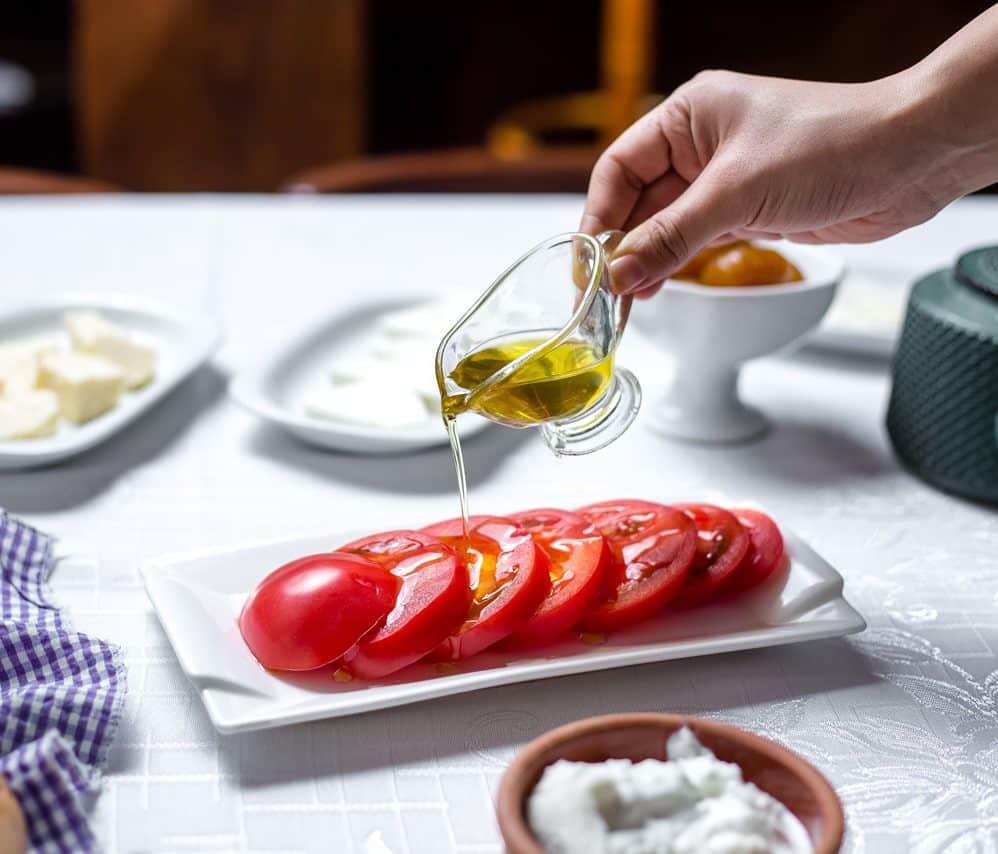What is special about olive oil, which is an important part of the Mediterranean diet, is the monounsaturated fatty acids, vitamin E and phenolic compounds in its structure. Oils high in monounsaturated fat are the preferred fats for a healthy diet because they lower bad (LDL) cholesterol and raise good (HDL) cholesterol. Vitamin E and phenolic compounds have very strong antioxidant properties
Olive oil occupies an important place in the diet with its unique color, smell, taste and aroma. It is the only oil that can be consumed naturally like a fruit juice and a source of “Vitamin E” necessary for the human body.
Regular consumption of olive oil has been found to reduce the risk of certain diseases, such as diabetes and blood pressure, but especially cancer. It also has very important functions for the digestive system, bone structure, brain and nervous tissue.

Olive oil helps lower the LDL component of cholesterol, which is the main risk factor for cardiovascular disease, while it does not alter the HDL component, which is beneficial and protective. With this property, it is the most suitable oil for heart health. Olive oil reduces the “risk” of blood clotting in the blood vessels by acting against the factors that play a role in the clumping of blood cells.
Olive oil protects against gastritis and duodenal ulcers by reducing the acidity of the stomach when consumed hot and cold.
Olive oil reduces the formation of gallstones and helps dissolve stones by stimulating bile secretion, regulating bile composition and emptying the gallbladder.
Olive oil is the oil that is best absorbed by the intestines and has the ability to regulate intestinal transit. Because it has the most balanced chemical composition of all fats, it helps improve bone mineralization and normal bone development.



